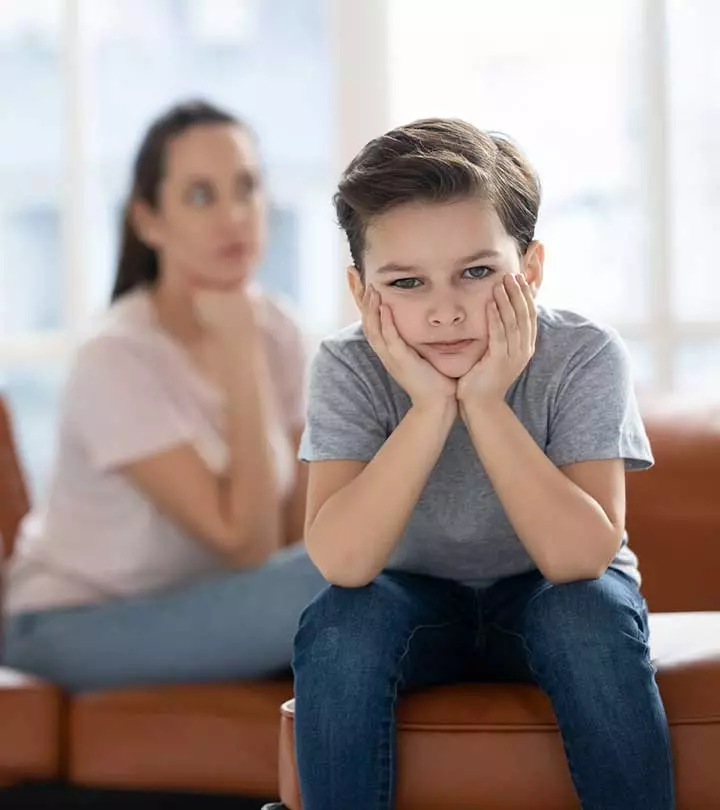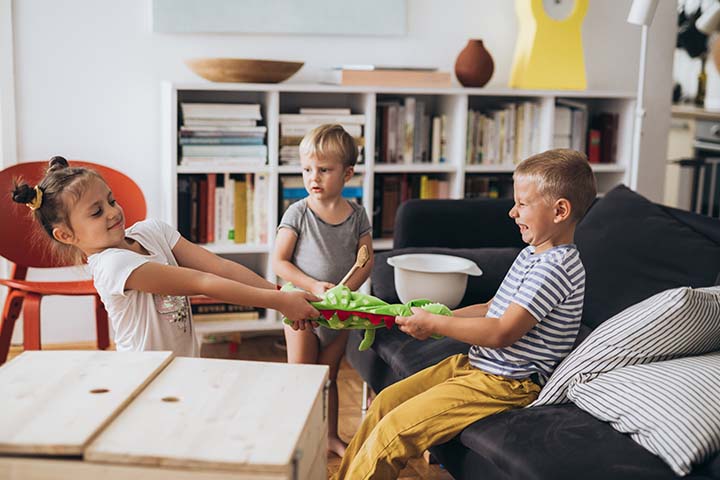
Image: iStock
We all want what’s best for our kids and would do anything to ensure that they grow up to be happy and successful people. But sometimes parents can be a bit harsh unintentionally. It’s important to pay attention to what you say to your kids as they absorb everything you do and say. So, even throwing around seemingly harmless phrases that you’ve heard your own parents use may have long lasting negative effects that you didn’t see coming. Even though you may not think it’s a big deal, it can be tough for your kids. And the little phrases you use to motivate them might actually be what’s holding them back. Although it’s hard to keep track of what not to say, here’s a list that will help you remember all the things you shouldn’t say to your kids and what you can say instead to get the desired result. Read on to know them all!
1. You’re Okay, Stop Overreacting
Image: IStock
Kids look up to you for support and comfort when they are upset about something or are hurt. And although you may have your child’s best interests at heart when you rush to calm them down and tell them that everything is fine and they shouldn’t overreact, it may not be the best reaction. Sometimes your child just needs you to let them be sad or upset for a minute before they bounce back. Comfort them and acknowledge their feelings, then encourage them to overcome it and go on with their day. You can also help them identify their emotions and why they are feeling this way by describing what happened.
2. Why Do I Have To Repeat Myself A Hundred Times
Why, probably because you’re talking to a little child. We’ve all heard this line throughout our childhood. The problem is that it doesn’t pose an actual question. It’s just a way for parents to complain about having to repeat themselves to their children when they don’t understand or aren’t paying attention to them. Instead of this ask them what they have difficulty understanding or why they are not paying attention to you. This will save you a lot of time and energy. Taking a genuine interest in your kids and figuring out how to communicate with them will help you create a stronger bond with them, especially in the future.
3. What Is Wrong With You
Image: IStock
This is another rhetorical question and something no parent should ever say to their kids. The last thing you want is for your child to think they are doing something wrong just by existing and being themselves. If, as an adult, a child trusts you when you say that there is something wrong with them, they begin to believe it. And they might think that they need to alter themselves to fit in in some form or the other when their behavior is just that of a normal child. So, no matter how frustrated or angry you are, don’t say these words. Instead ask them why they are upset and feel the need to act out or throw a tantrum. You want to ask genuine questions so that you can get to the root of the problem, not just try to find fault in your child for their behavior.
4. Be Careful
It’s perfectly normal for parents to be a little paranoid where their child is concerned. After all, they didn’t keep them alive throughout their hazardous toddler stage just so that they could break their arms trying to conquer the money bars. But you may be hindering your child instead of protecting them if you never let them explore past their comfort zone. Keep in mind that life is often dangerous and full of risky decisions. And although it’s not advisable to walk on the wild side, no one can be safe and secure all the time. Your child needs to cultivate the confidence to take risks and challenge themselves. And yes, sometimes this may result in a broken arm. But it’s better than never trying anything hard and worthwhile at all. So instead of warning them against doing something you’re uncomfortable with, allow them to explore while still overseeing them from a distance and informing them of the consequences if they are not cautious.
5. I Know You Didn’t Mean To Hurt Them
Image: IStock
Yes, your child did. As hard as it is to admit, kids don’t really understand the repercussions of hurting people and so they do, on purpose. They also experience strong negative emotions like adults do and we must not discount that. Kids don’t have a grasp on their emotions, yet so sometimes they lash out while blindly following their instincts. And this makes them feel good at the moment because it is an outlet. So, don’t use this phrase as an excuse for your kids. Instead, teach them how to control and redirect their negative emotions in healthy ways.
Parenting is never easy and it’s okay to make mistakes, as long as you learn and move on from them. Make sure to never use these phrases on your kids to ensure that they don’t suffer the consequences of their negative implications. Is there something we’ve missed out on? Let us know in the comments section!















